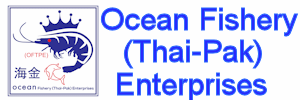Monaco Blue Initiative - Feeding and fueling the
world through sustainable aquaculture. "The subject of marine
protected areas is extremely productive. It provides essential
strategies for the broader issues of biodiversity protection,
preservation of marine areas and, more importantly, man’s harmonious
coexistence with his natural environment (…) to establish effective
and lasting biodiversity management systems, we must, first and
foremost, widen our field of vision." - H.S.H. Prince Albert II of
Monaco
Seafood is now a source of food and income for one quarter of the
world population. Today fisheries catch remains stable but the
production of aquaculture continues to rise. World production of
seafood from aquaculture has more than doubled in 12 years, from 32
to 67 million tons in 2012.
Beyond the sole production of seafood, the development of marine
plant production between 2000 and 2012 has also been notable, in
particular in Asia.
Whilst the ocean is becoming an area for large-scale cultivation, it
is crucial to consider the implications of this new situation in
terms of environmental protection, regulation and collaboration.
Indeed, these new challenges once again highlight the importance of
involving scientists, industrialists, NGOs, etc., to the
establishment of a sustainable production system and make the best
rather than the most of these new resources.
The last edition of the Monaco Blue Initiative in Chile questioned
the status and feedback from aquaculture in America, towards a
sustainable approach to its development. The 2015 edition will
pursue these discussions with experts and decision-makers worldwide
on the theme: Feeding and fuelling the world through sustainable
aquaculture?
Oceanographic
Institute, Foundation Albert I, Prince of Monaco - Since its
creation in 1906, the Oceanographic Institute is committed to
sharing its knowledge on the richness and fragility of the oceans,
and promote their sustainable management and efficient protection.
For this, it ensures the mediation between scientific and
socio-economic players on the one hand, and the public and
decision-makers on the other.
|
General Fisheries
Commission for the Mediterranean - Consisting of 22 Member
countries along with the European Community, the GFCM’s objectives
are to promote the development, conservation, rational management
and best utilization of living marine resources, as well as the
sustainable development of aquaculture in the Mediterranean, Black
Sea and connecting waters. Membership is open to both Mediterranean
coastal states and regional economic organizations as well as to
United Nations member states whose vessels engage in fishing in
Mediterranean waters.
Ocean Health Index Monaco - The Ocean Health Index is a valuable tool for the
ongoing assessment of ocean health. By providing a means to advance
comprehensive ocean policy and compare future progress, the Index
can inform decisions about how to use or protect marine ecosystems.
The Index is a collaborative effort, made possible through
contributions from more than 65 scientists/ocean experts and
partnerships between organizations including the National Center for
Ecological Analysis and Synthesis, Sea Around Us, Conservation
International, National Geographic, and the New England Aquarium.
Information for Monaco
|





